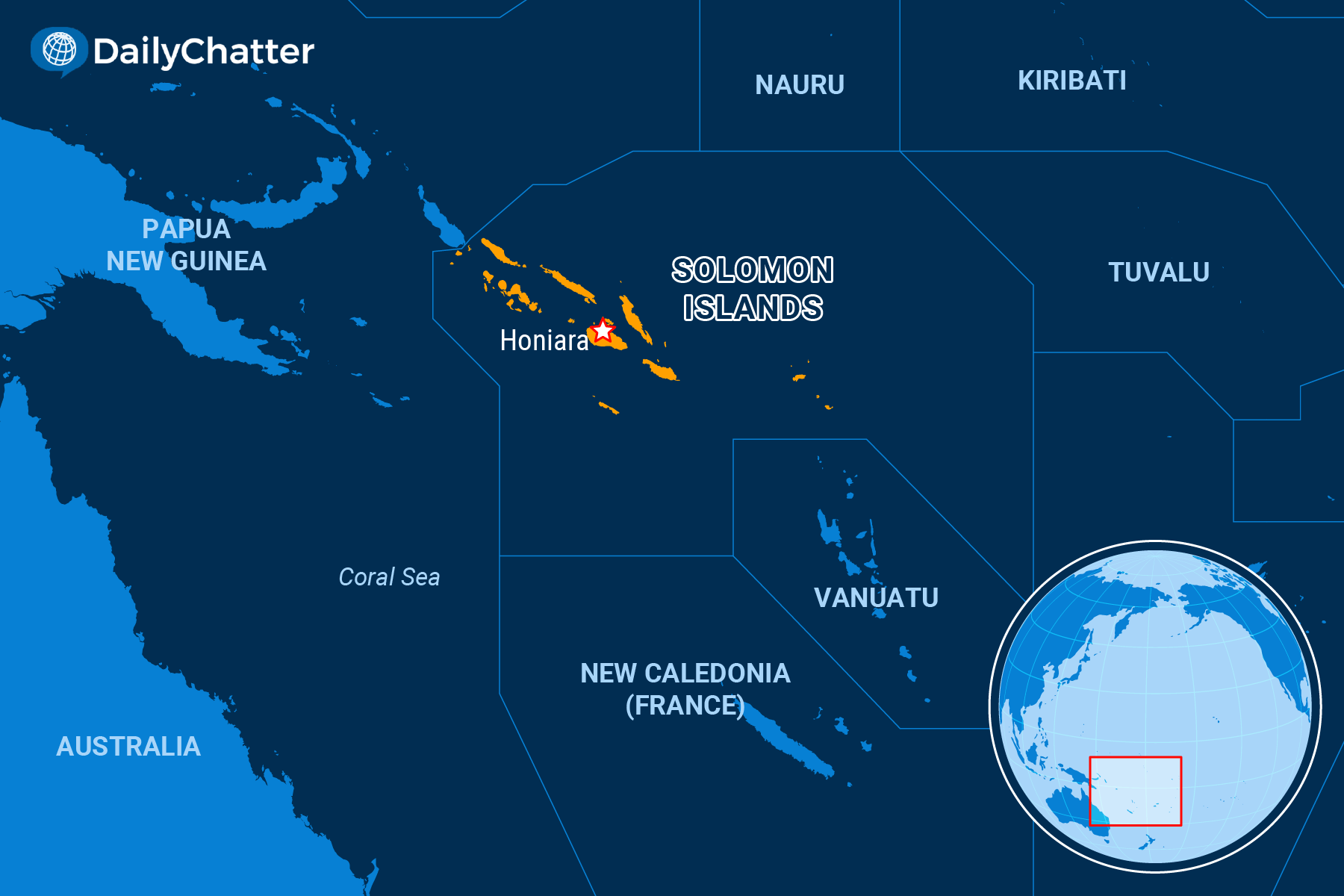Need to Know
April 17, 2024The Cost of Allegiance
Solomon Islands

|
Listen to Today's Edition
|
Parliamentary and local elections in the Solomon Islands on April 17 are yet another example of how domestic politics in Pacific countries have become proxy battles between China and the US.
In 2022, three years after he rescinded his country’s recognition of Taiwan, Solomon Islands Prime Minister Manasseh Sogavare signed a security agreement with China, a controversial move because the country has been an American ally since the end of World War II.
Sogavare defended the deal, noting that the archipelago to the east of Papua New Guinea also cooperates on security with the US and Australia, wrote the Associated Press. It is one of a handful of similar agreements, like one with Tonga, that China has reached in the region, reported Agence France-Presse.
American leaders have warned Sogavare of drawing too close to leaders in Beijing. “That’s a foot in the door, and then we’ll see where it goes from there,” US Navy Adm. John Aquilino, who commands American forces in the Indo-Pacific Command, told Reuters. “But the goal is to have the ability to deliver infrastructure and ultimately a place for Chinese military power.”
But China is also a crucial economic partner, Sogavare has argued. Chinese investment built much of the infrastructure for the popular Pacific Games hosted in the Solomon Islands late last year. Chinese companies are constructing ports, while Huawei is installing a telecommunications network.
China has exacted a price for its support, however, added World Politics Review. Chinese companies have triggered a boom in an illegal logging industry that has exported 80 percent of the wood produced in the country. This industry has deforested islands while providing little benefit to government coffers or local economic development.
The prime minister’s popularity has taken a hit because of these issues and the poor public services in much of the country, including inadequate healthcare, poor education, and crumbling roads.
So when Sogavare postponed last year’s parliamentary ballot to this month, saying the government could not oversee the games and an election, “many saw the delay for what it was – Sogavare buying more time to consolidate power and boost his chances for reelection,” noted the Atlantic Council.
Opposition leader Peter Kenilorea of the United Party has criticized Sogavare’s governance, saying he would review the security deal with China and reestablish recognition of Taiwan over China’s objection, wrote GZero, which described the election as a “referendum” on China.
Now, added GZero, Solomon Islanders will have their say.
Not already a subscriber?
If you would like to receive DailyChatter directly to your inbox each morning, subscribe below with a free two-week trial.
Support journalism that’s independent, non-partisan, and fair.
If you are a student or faculty with a valid school email, you can sign up for a FREE student subscription or faculty subscription.
Questions? Write to us at hello@dailychatter.com.

